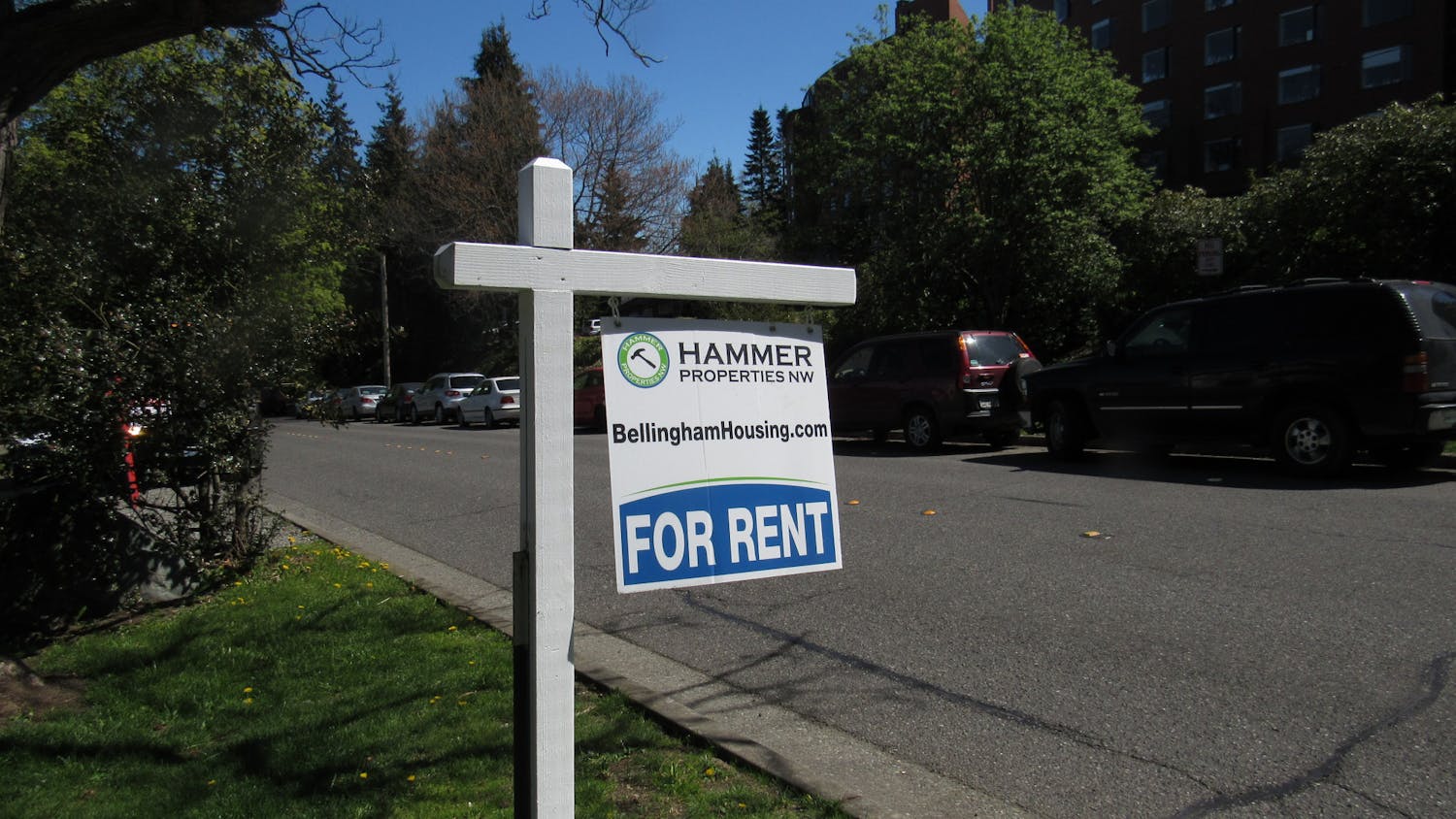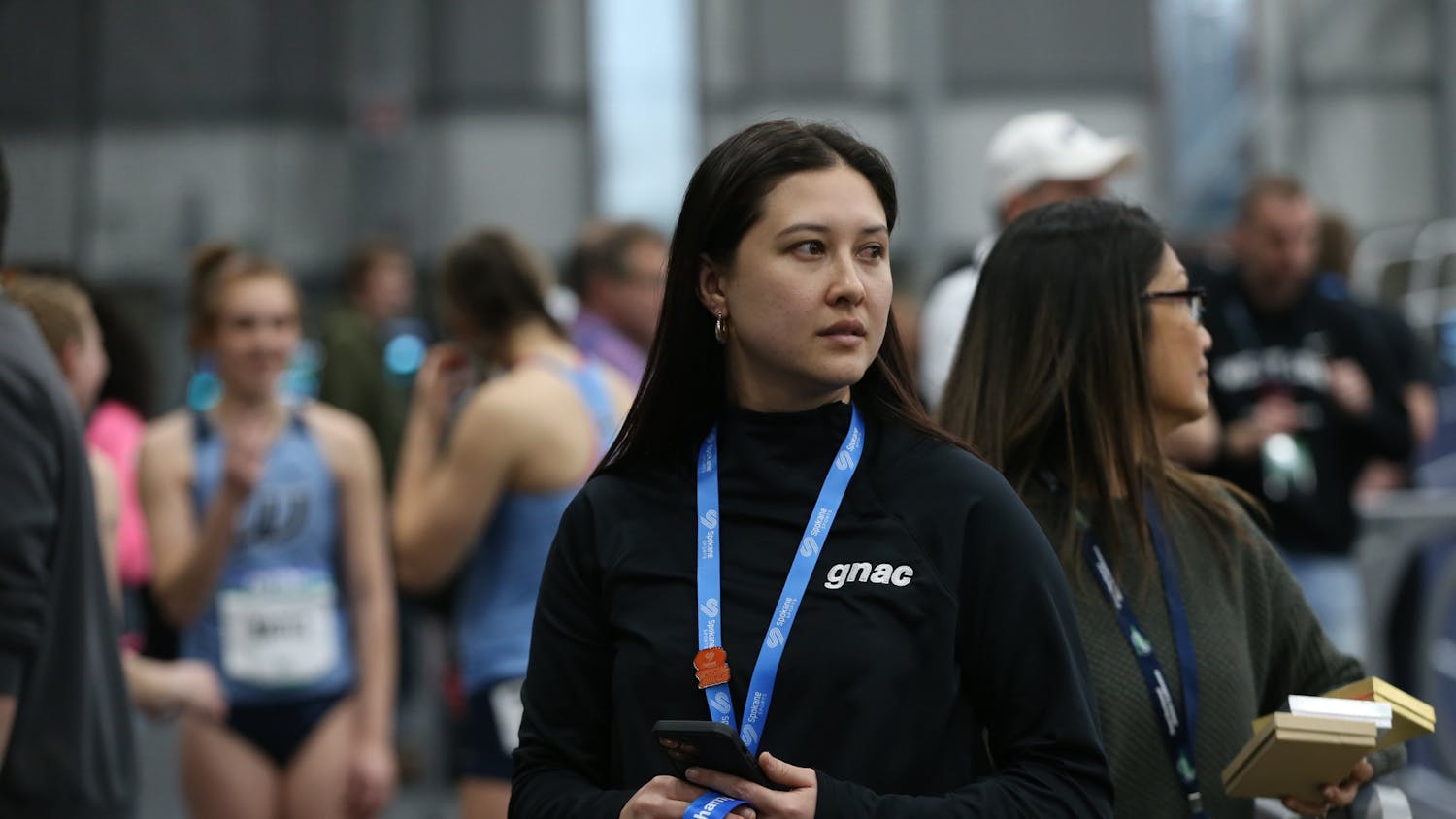Dozens of curious students and faculty crowded around the Wade King Student Recreation Center for a chance to try out one of three electric bicycles demoed by Spark Mobility, a green transportation startup with hopes to install an e-bike share system at Western.
Katherine Frankhauser, co-founder of the Spokane-based startup, came to Western on Thursday, May 21. Frankhauser, a Huxley graduate of 2003, chose Bellingham for the company’s debut bike share program because of her strong ties to the city.
 “I pushed for it, and convinced the rest of the company because I think it would be a perfect place to model what can be done with this technology,” she said. “I personally think Bellingham deserves a chance to be a model and I’d like to put it on the map in the mobility world.”
“I pushed for it, and convinced the rest of the company because I think it would be a perfect place to model what can be done with this technology,” she said. “I personally think Bellingham deserves a chance to be a model and I’d like to put it on the map in the mobility world.”
Spark Mobility offered three different bike designs for the curious to test ride around the rec center, each with different frames, batteries and motor options. Students and faculty eagerly signed liability waivers and donned helmets for an opportunity to put the Swiss-made e-bikes through their paces.
The black mountain bike called the Mamba has a powerful 500W motor and sleek profile, and was a crowd favorite.
"I got up to probably 30 mph on the flats with some stiff pedal strokes,” business sustainability student and avid cyclist Ryan Roberts said.
Roberts was especially impressed with the mileage that the Mamba could achieve, offering a range of nearly 50 miles on one charge.
"I want to eventually have the ability to replace my car, picking up groceries and doing errands. I don’t know that I can entirely do that with the bike I've got right now, but I could totally attach a trailer to something like this and cruise around at car speeds," he said.
Dean Christensen, a community member and e-bike enthusiast came out to support Spark Mobility and show off his own home-built e-bike.
"I had to build my bike because we didn't have all this new technology,” Christensen said. “It seems like every time the price of gas goes up the interest in electric bikes goes up.”
Spark Mobility’s e-bike sharing system would work similarly to regular bike sharing systems, Frankhauser said. Users could swipe a membership card at a bicycle docking station, take their bike for a spin and return it to any other Spark Mobility docking station.
Users could swipe a membership card at a bicycle docking station, take their bike for a spin and return it to any other Spark Mobility docking station.
The key difference is these bikes don’t run on muscle and willpower alone.
“E-bikes reduce all of those factors that would prevent someone from taking a bike out in the first place,” Frankhauser said. “Such as the hills, the distance and the sweat factor.”
Bike sharing platforms have been popping up all over the country in recent years. Seattle’s own bike share system, managed by Pronto Cycle, launched in October of last year with 500 bicycles and gained 1,450 memberships in its first week of operation.
Electric bike sharing is a new phenomenon in the U.S., Frankhauser said. Spark Mobility’s e-bike system, if implemented in Bellingham, may be the first in the country.
Despite its novelty in the U.S., e-bike sharing has been popular in Europe for some time, Frankhauser said. In fact, the same system Spark Mobility is offering is currently being used in Switzerland, Luxembourg, Belgium, France, Hungary and Croatia.
"This isn't a beta test,” Frankhauser said. “This is something that's been running for a long time.”
Implementing an electric bike sharing system on campus is a big deal and there are a number of factors involved, said program manager for the Sustainable Transportation Office, Carol Berry.
“We don't just add something because it might work,” Berry said. “We need to pay for everything and we need to keep the cost low for students and the taxpayers, so there's a process.”
However, the first step in that process is developing the technology and determining how a system could work, Berry explained. In the case of Spark Mobility’s e-bike sharing platform, that work is done.
The second step is to determine if the system would work for our campus and if it would fulfill a real need. This is what the Sustainable Transportation Office is currently trying to gauge, Berry said





